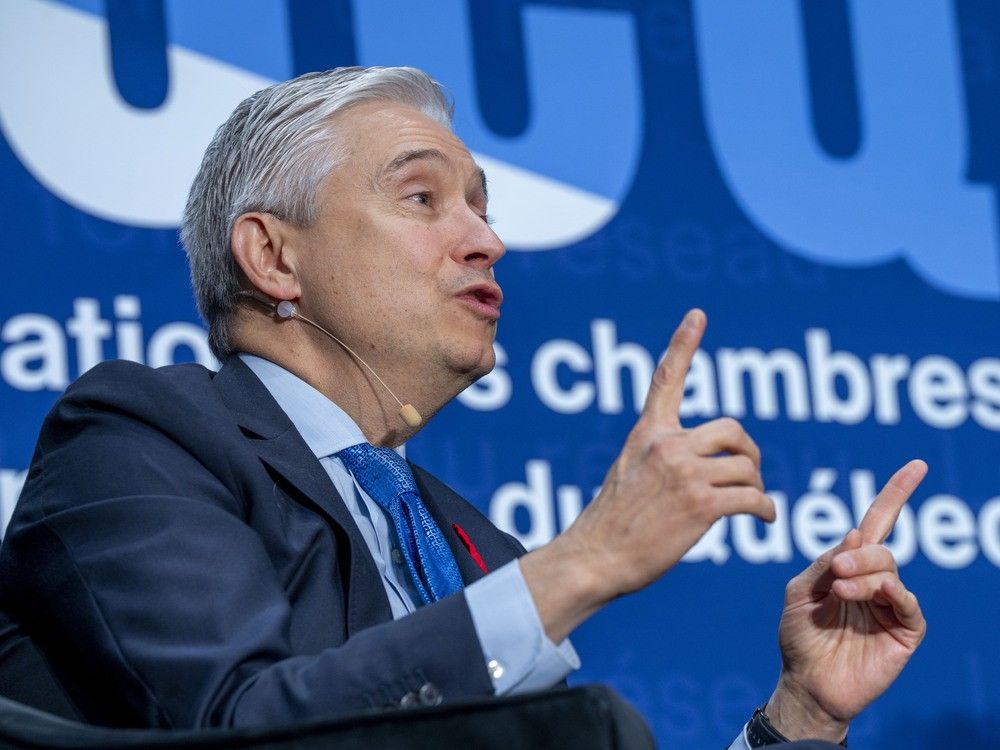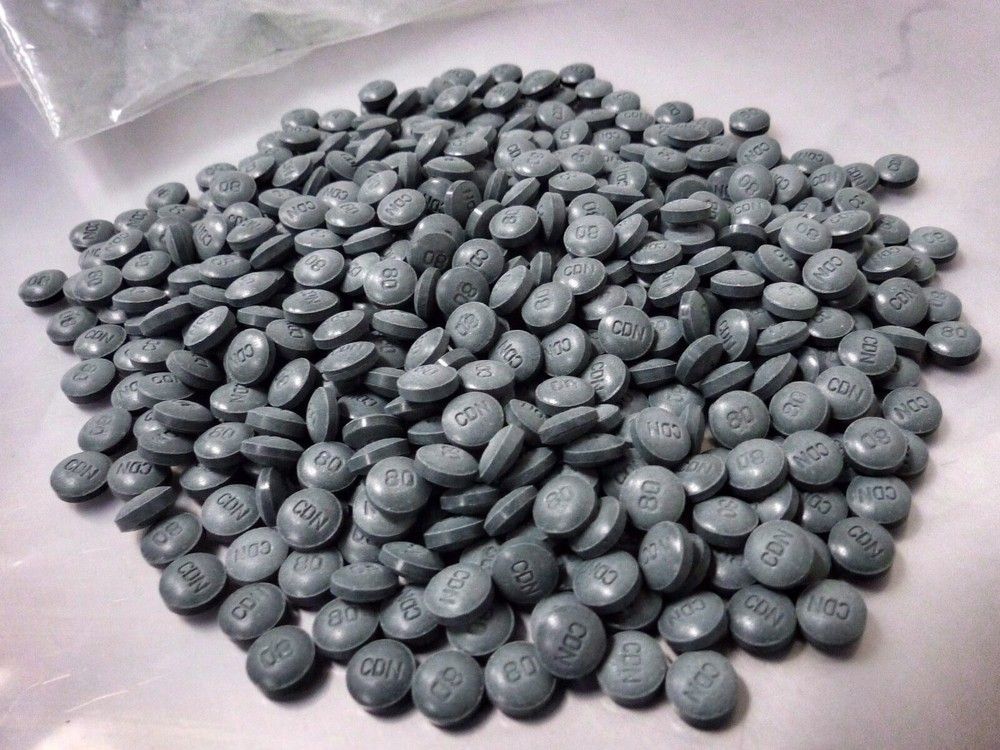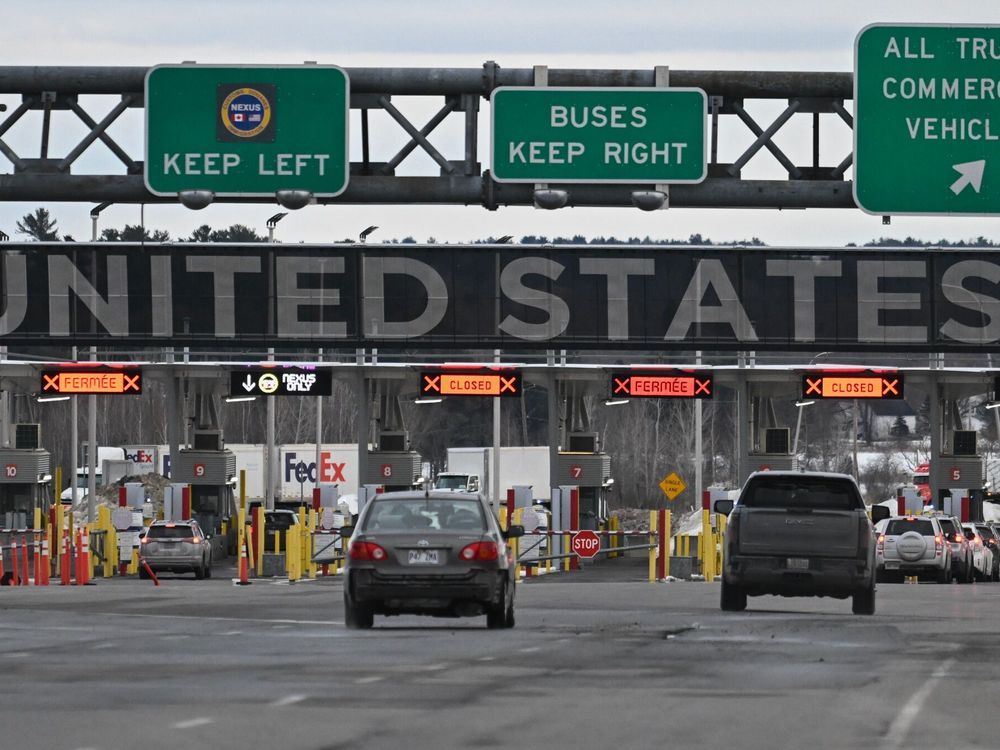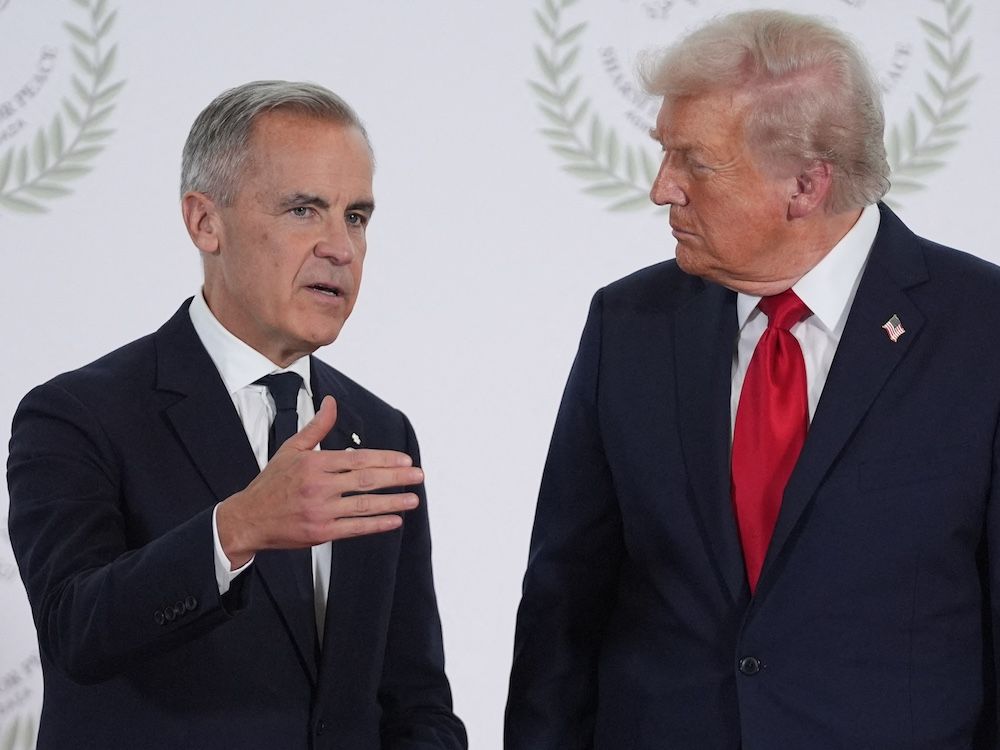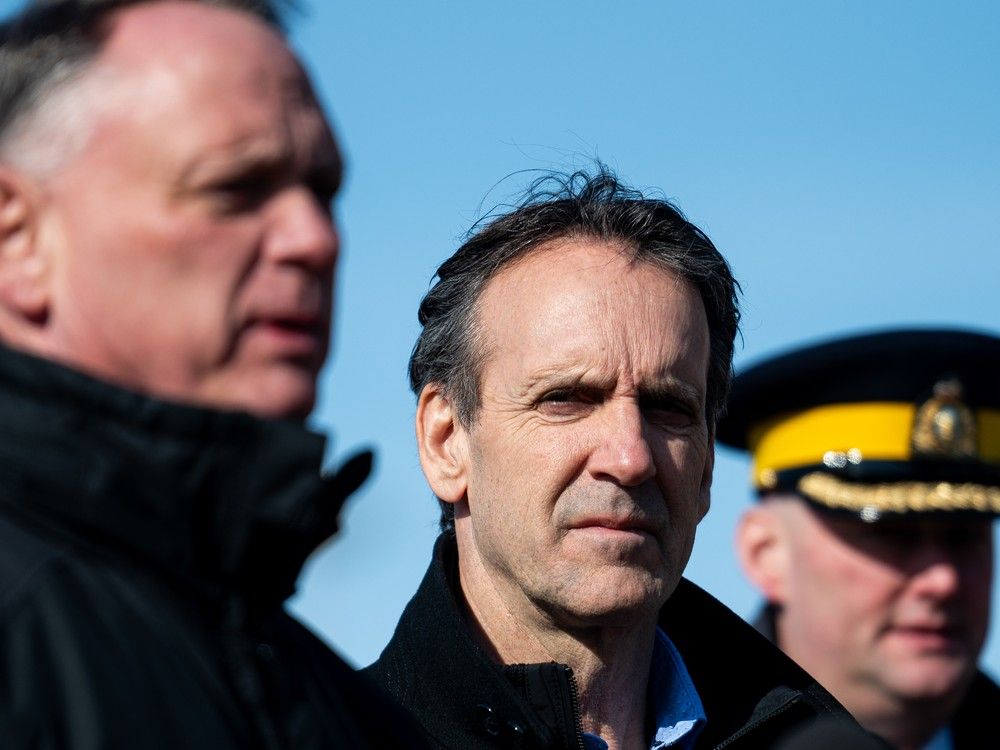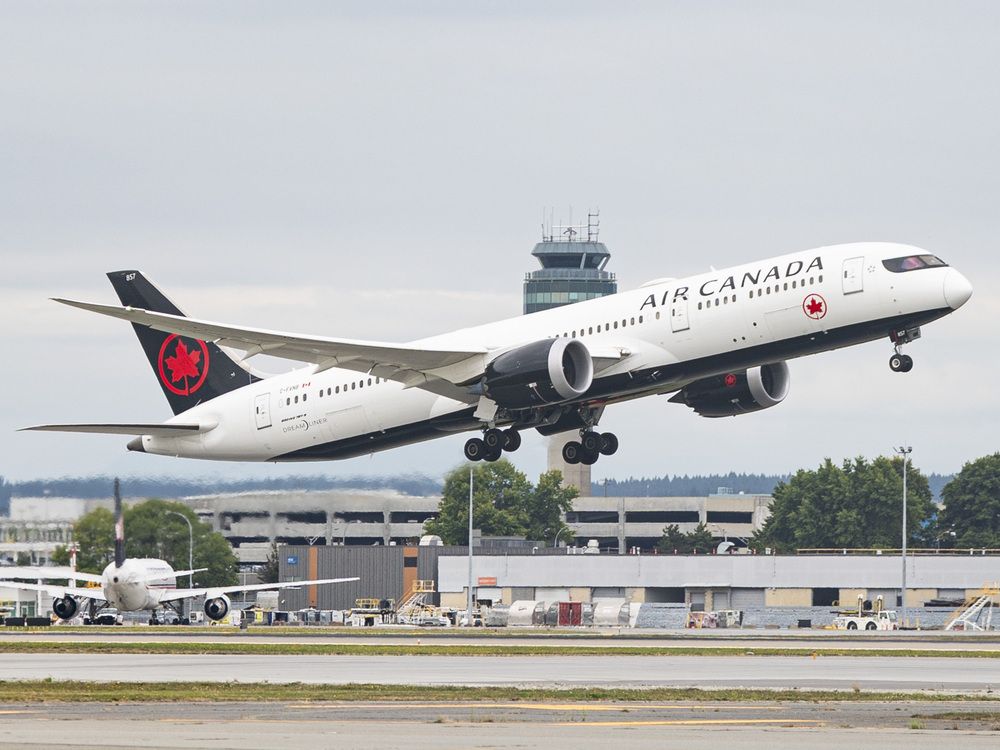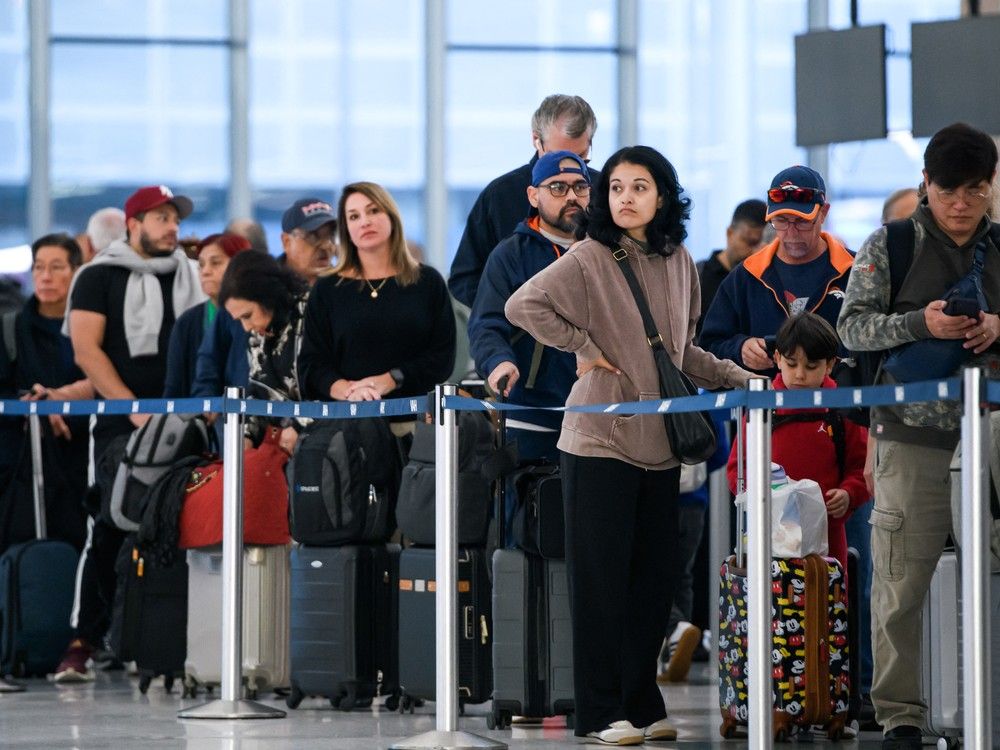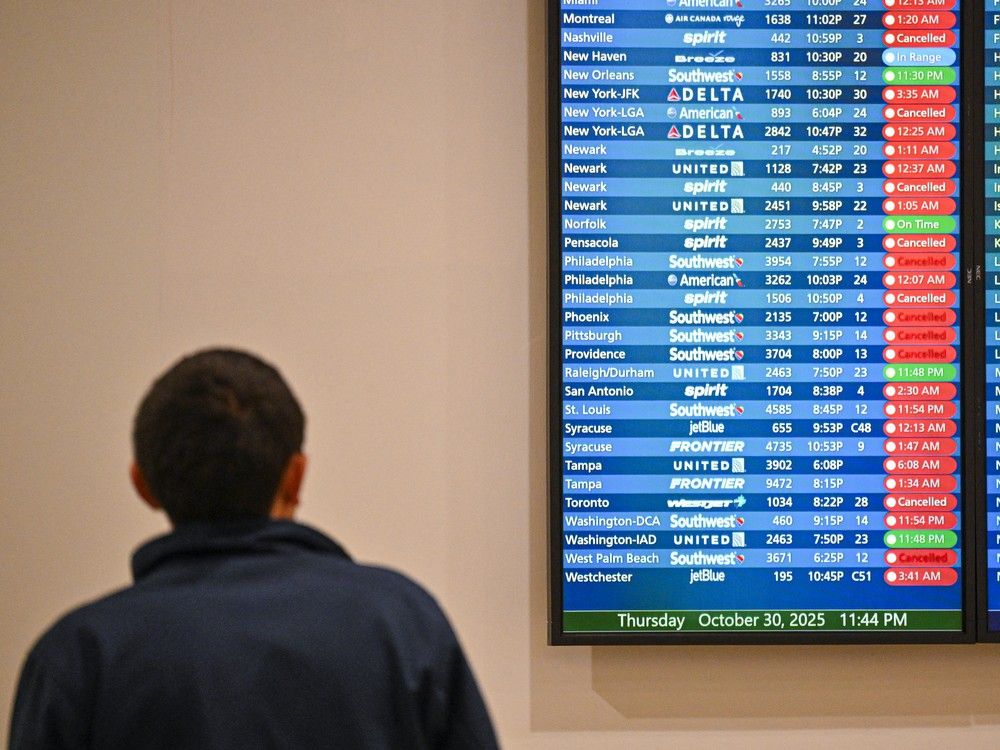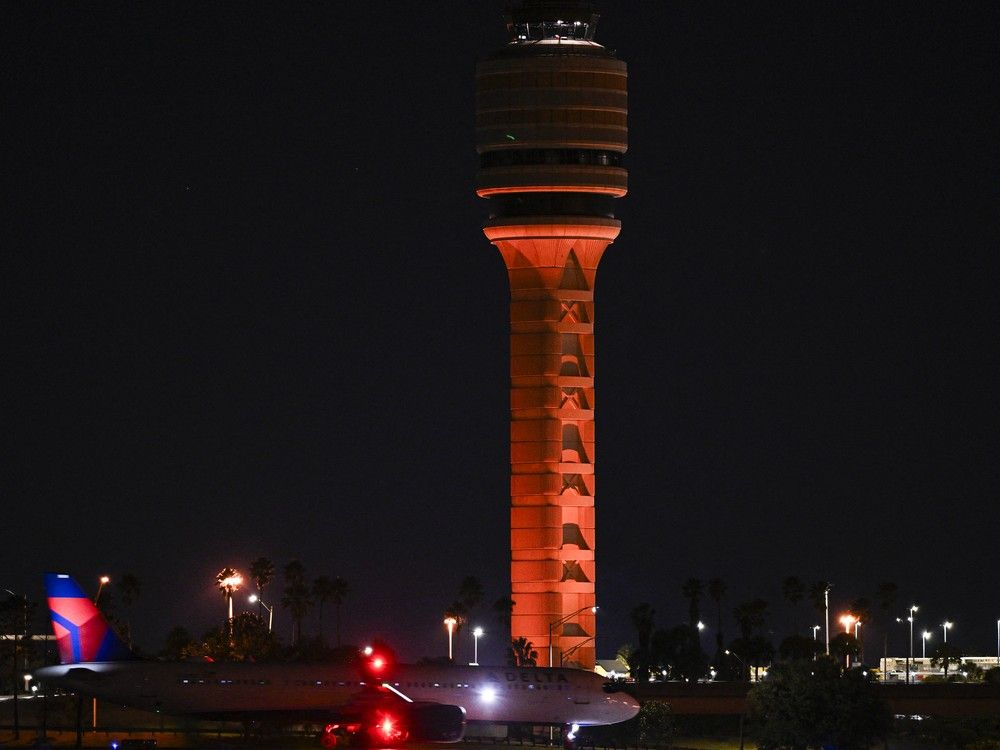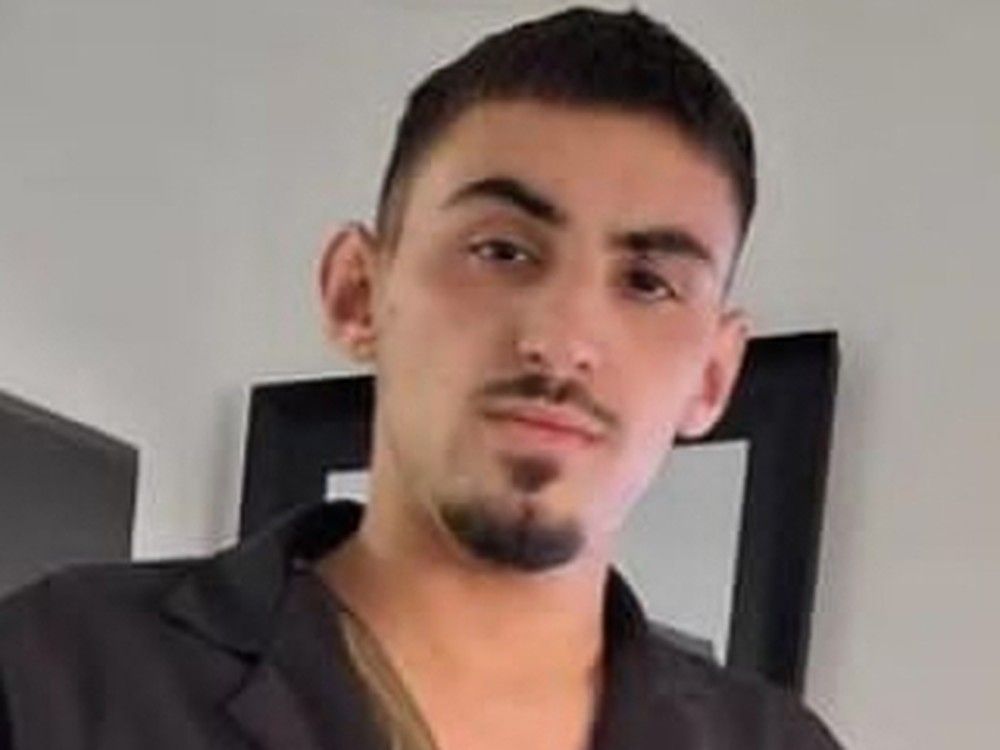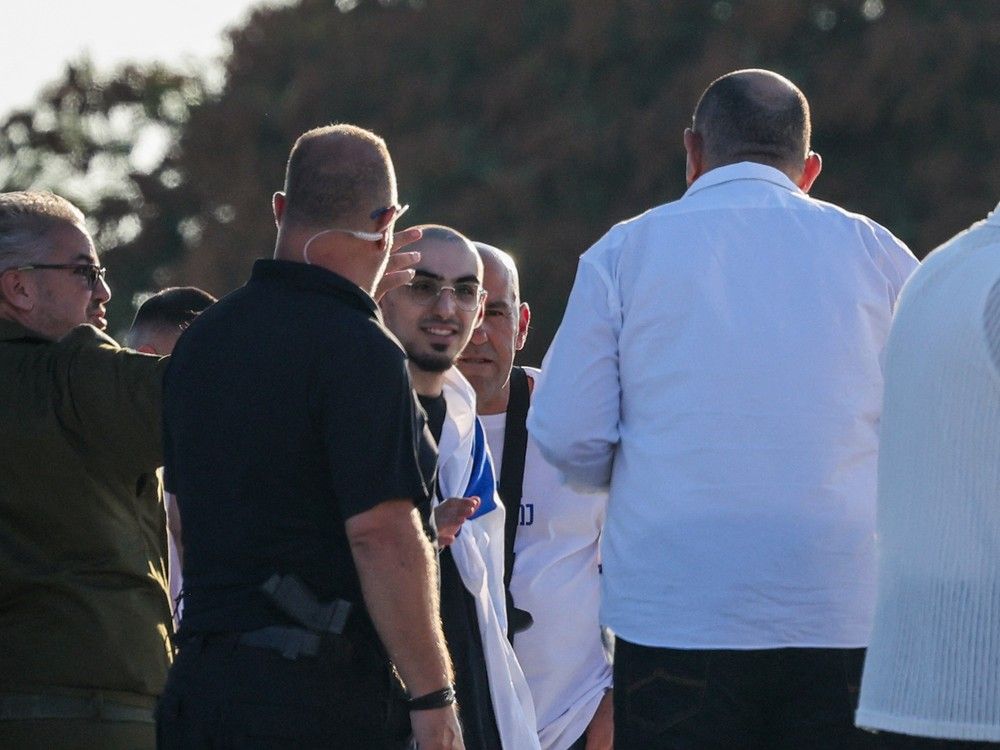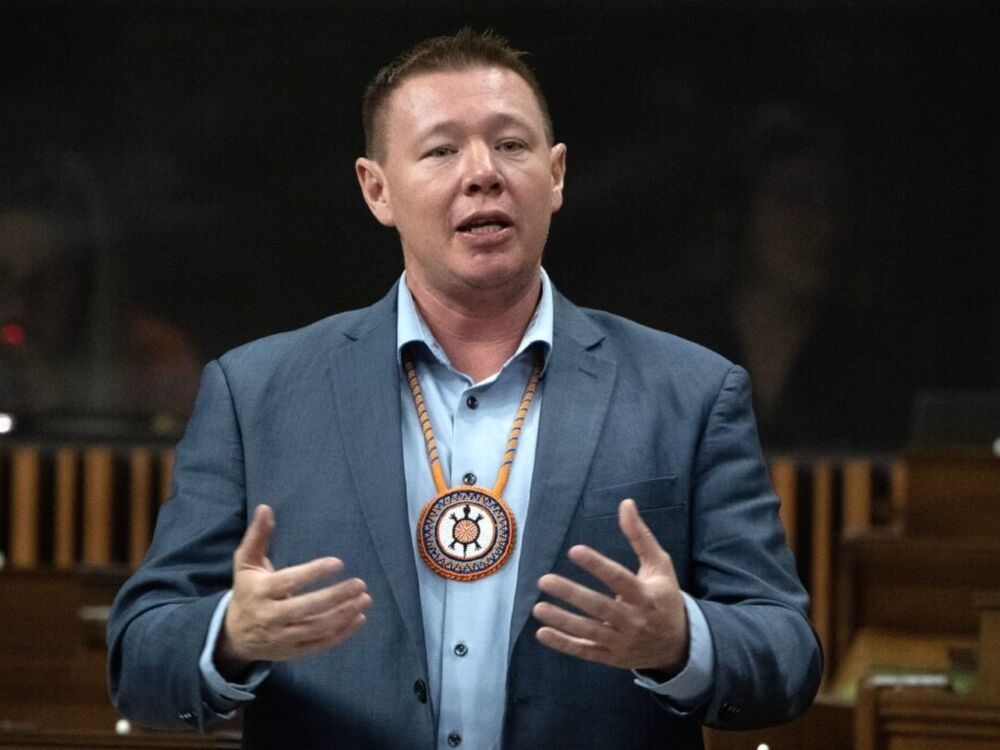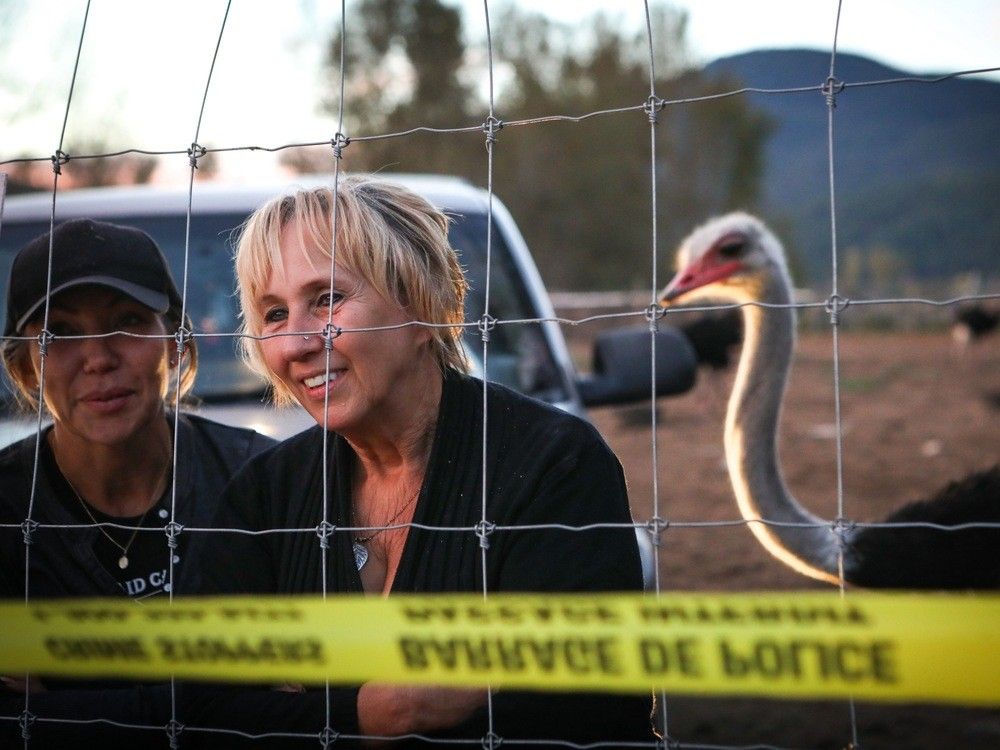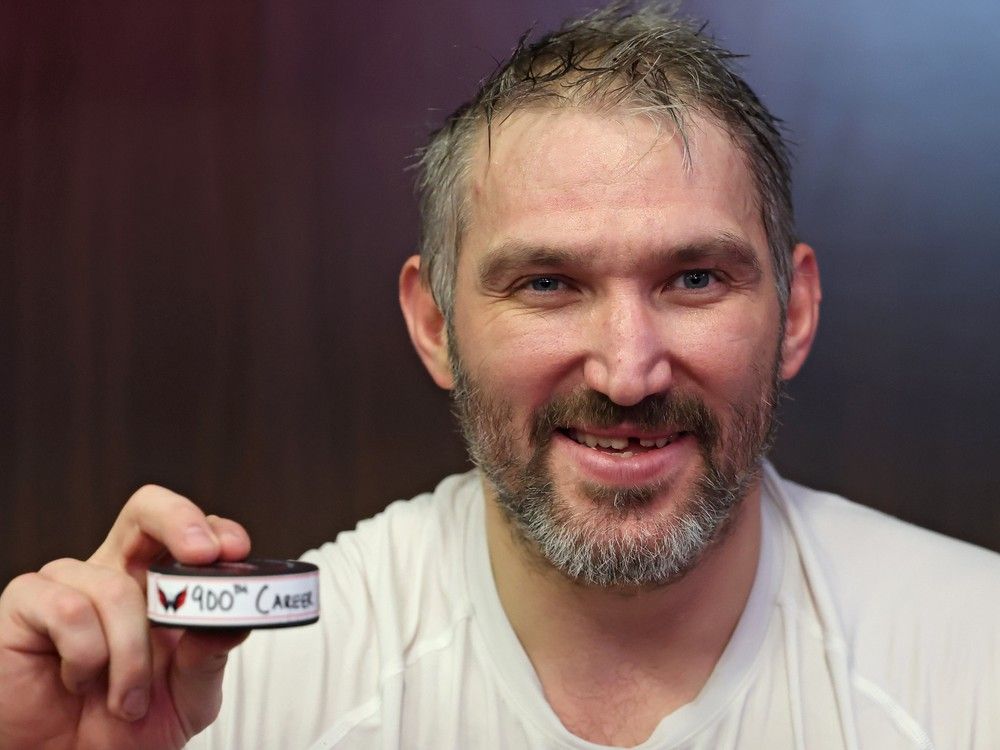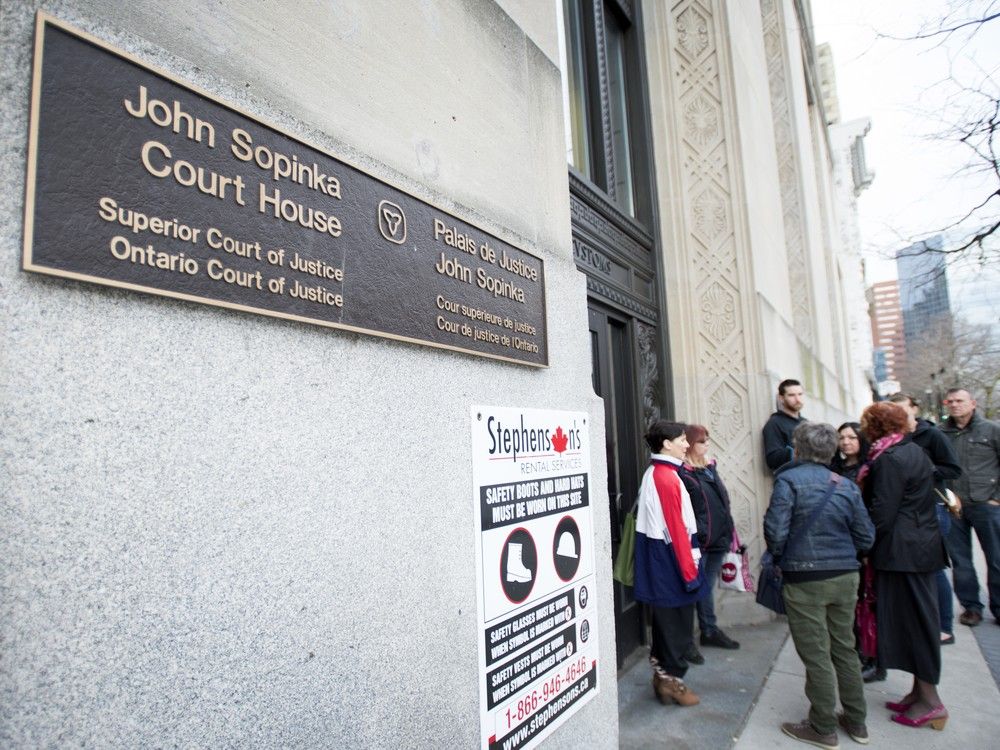
It’s early fall on a shallow stretch of the Rideau River in Ottawa, a few hundred metres below Hog’s Back Falls. That’s the point where the Rideau Canal splits off from the once-natural waterway it has commandeered as a boat channel for almost 200 years, and where the liberated river finally reasserts its wildness.
In this remnant feral section of the Rideau, which runs past Carleton University, hundreds of Canada geese — showing an untamed spirit, like the stream that has drawn them here — are massing in a honking, splashing, fluttering maelstrom of exuberance.
They arrive on this mid-October day every few minutes in gaggles of five, eight, 12. There’s a sense of urgency, it seems, as they descend rapidly from the sky, some of them “whiffling” — performing a mid-air body twist that sends the bird plunging sharply — to hit their chosen landing spot on the water.
Now and then, an individual frantically skims across the surface of the water in pursuit of another — half-flying, half-swimming, long black neck aimed low and beak flared — in what looks like a vigorous game of chase. The behaviour, perhaps a mating or bullying display, will subtly reset the social order within this congress of Branta canadensis, Canada’s iconic white-cheeked goose.
Who knows exactly why they do what they do? Who could say how the alert was spread amongst these birds — which arrive from different directions, over the course of several hours — to flock here and now? What magic so finely attunes them to each other, to the rhythms of the day and the cycle of the seasons?
A commuter train rumbles over a bridge above the water. Cars whiz past. We can watch, but the geese are in their own world.
Ottawa naturalist and author
Michael Runtz
, a Carleton biology professor for 40 years before his retirement this year, explains that the
city’s population of Canada geese
in the fall is a combination of stopover birds from the north — briefly feeding and roosting in Ottawa on their epic migration between sub-Arctic Canada and the U.S. South — and “resident” birds that stick around for all or most of the year.
Different subspecies of Canada geese are hard to distinguish, especially when they’re in the water. If, among the river birds, there are some true migrants, they would be in the midst of a classic Canada goose odyssey — 2,500 kilometres, say, from breeding grounds off the east coast of Hudson Bay to wintering sites in the Carolinas or neighbouring states.
Such transient geese would probably belong to the subspecies Branta canadensis interior, ancient travellers of the Atlantic Flyway, with Canada’s capital region a convenient, river-rich, midway pit stop.
But it’s likely these birds on the Rideau River on this particular day are mostly “giant” Canada geese —
Branta canadensis maxima
— the dominant breed in many cities across Southern Canada and the Northern U.S. The journey for these “maxima” might be a mere 1.5-km short-hop flight to a widening of the river just above the Hog’s Back dam at Mooney’s Bay, a popular nighttime roosting site for waterfowl.
This heftier subspecies makes up the resident populations Runtz described — and they are the so-called “nuisance” geese that almost never travel far from any of their home cities, even in the depths of winter.
And even though we often wish they would.
‘We can only blame ourselves’
Geese of the maxima breed have become a scourge of urban Canada and the United States. Typically weighing 12 to 18 pounds, they will sometimes commingle with their migrating cousins and even influence the behaviour of the visitors, altering their traditional travel patterns.
The giant Canadas are infamous for swarming parks and golf courses to graze on mowed lawns, for befouling recreational pathways and public beaches, and for hissing or even charging at humans who dare to walk or cycle too close to them.
These big geese drop gooey, greenish poop in prodigious quantities almost everywhere they go. They can be vectors for avian influenza and other pathogens. They can damage crops, degrade landscapes and even threaten vulnerable plant species because of their overabundance in many places. Around airports, they pose one of the most serious risks of all bird species for colliding with planes — their great size and flying behaviours intensifying the danger.
Not surprisingly, across the continent, nuisance populations of giant Canada geese have prompted extensive and expensive
municipal campaigns
of harassment using drones and dogs, birth control by egg-oiling or egg-addling (shaking) and — in relatively few instances, so far — straight-up killing of birds where numbers have swollen to unmanageable excess.
The birds can be hunted across Canada, typically in the fall — but only outside urban boundaries, of course. Hunting limits are sometimes eased to reduce goose populations, but the giant Canadas have learned that city living offers ample food supplies and affords excellent protection from predators — including humans with guns.
Many times, Runtz says, he has watched geese gather on the Rideau next to Carleton’s campus. Like everyone else at the university in recent years, he’s also seen the surfeit of nuisance geese clustered on campus green spaces, munching grass and relentlessly dumping turds on lawns and sidewalks, bike paths and parking lots.
For now, they are tolerated. But summing up the long-term challenge facing many Canadian and U.S. cities, Runtz says, “It may come to a point where the annoyance factor exceeds the desire to protect the animal.”
Like all Canada geese, the giants have some endearing traits. They mate for life and dote on their fuzzball yellow young. Their flocks form postcard armadas on mirror-like lakes, and they sometimes fly — even short distances — in those breathtaking phalanxes of honking vees.
Among the main reasons we have so many giant Canada geese in their namesake nation is because families love to watch them, hunters love to harvest them and — for about 25 years in the late 20th century — wildlife advocates eager to satisfy those two constituencies, as well as their own mandates, loved launching programs to build up Canada goose numbers.
“The animals are the innocent participants in this,” Runtz says of the continent’s giant Canada goose overpopulation crisis. “They never asked to be bred and nurtured. And so, we can only blame ourselves.”
The giant Canada geese on the river this day might be gathering to fly only a few minutes upstream, or to a stubbly cornfield on the outskirts of the city, or to an overnight roost on a cottage lake. They may well be coming soon to a playground or fairway near you.
But it’s easier to appreciate Branta canadensis maxima after learning that the giant Canada goose was thought to be vanished from the Earth less than a human lifetime ago.
‘Appears to be extinct’
Yes, you read that right. The largest subspecies of Canada goose that has overrun so many of our picnic grounds, soccer fields and business parks in the early 21st century was presumed extinct in the mid-20th, an apparent victim of generations of settlement-era overhunting and habitat destruction, particularly the draining of wetlands.
“The giant Canada goose appears to be extinct,” the renowned French-American ornithologist Jean Théodore Delacour wrote in his landmark 1954 treatise, The Waterfowl of the World. There were numerous such references to the bird’s demise in the scholarly literature of the time; the giant Canada was “forever gone,” as the distinguished Manitoba naturalist
Hans Albert Hochbaum
put it in his 1955 classic, Travels and Traditions of Waterfowl.
The backstory of B. canadensis maxima is complicated by the fact that research by Delacour and another famed ornithologist — California birder James Moffitt, namesake of a smaller West Coast subspecies called Branta canadensis moffitti — had only belatedly earned the scientific community’s recognition that the giant Canada goose ever existed at all, and wasn’t just a myth propagated by boastful hunters in the late 1800s and early 1900s.
Still, maxima was widely considered a lost life form until January 1962. That month, a group of wildlife experts in Minnesota sought the expertise of Dr. Harold Hanson — a goose specialist with the
Illinois Natural History Survey
— to help create a management plan for a mysterious flock of about 4,000 Canada geese wintering on a reservoir in the Upper Midwest state.
The geese had discovered an oasis of warm water in Silver Lake, an artificial widening of the Zumbro River just north of downtown Rochester, Minn. There, downstream discharges from an electrical power plant built in the 1930s kept the basin from freezing over even in the coldest weeks of the year.
The flock included a few dozen Canada geese originally kept in a nearby pond owned by the Mayo family — founders of Rochester’s world-famous medical clinic. Those ornamental birds had been relocated to Silver Lake in the 1940s, where they joined the migrant geese of unknown origin.
As the Rochester flock grew year after year in their “hot tub” reservoir, Minnesota wildlife officials became eager to know more about the habits and spring breeding grounds of the migrant birds — especially since local hunters were pushing for permission to start shooting.
Instead, state conservation authorities declared Silver Lake a wildlife refuge, protecting the flock. And when Hanson arrived in Rochester in mid-January 1962, a landmark moment in ornithological history was about to unfold.
He later wrote about his excitement at being given “the opportunity to solve this wildlife riddle … On that memorable day, the temperature held around zero and a strong wind blew, but this only added zest to the enterprise.” After firing a net gun to humanely trap some of the Silver Lake birds for study and banding, Hanson was struck by the enormous size of many of the geese, their six-foot-plus wing spans wider than those of the Illinois subspecies, B. canadensis interior, that he had been researching for years in his home state.
Some of the birds were weighed at a lakeside workstation. Hanson and his Minnesota colleagues were perplexed when the bigger geese they’d trapped tipped their scales at 14 pounds or more.
“The work proceeded smoothly, except for one hitch — we were obviously using faulty scales,” Hanson recounted in his 1965 masterwork,
The Giant Canada Goose
. “The only question was, ‘How faulty?’ ”
A team member purchased a 10-pound bag of flour and five pounds of sugar from a local grocer. Both weights were verified on a scale at the store.
“Upon our return to the banding site, a quick test of the scales revealed that the ‘impossible weights’ we had been getting were correct,” Hanson wrote. “Now we knew beyond question that we were dealing with a very large race. But what race? The giant Canada goose had been repeatedly written into extinction and could not be a possibility.”
Hanson reread the research by Delacour and other authorities who had gathered testimonials about giant Canada geese — some beyond 20 pounds — from birders and hunters a generation ago, or more. He compared their descriptions with the traits of the Silver Lake geese.
Only then, he wrote, “did I realize that the Rochester flock had to be Branta canadensis maxima!”
Scientists like Harold Hanson don’t use exclamation marks lightly. The discovery on Silver Lake was monumental, and he knew it.
The next step was identifying the spring nesting sites of the migrant birds and launching a full-scale recovery and repopulation effort.
Hanson traced the giant Canadas’ primary breeding grounds to south-central Manitoba — the Interlake region, a world-renowned habitat for ducks and geese between Lake Manitoba and Lake Winnipeg, and a few other waterfowl refuges in the southern part of the province.
News of Hanson’s discoveries was soon grabbing headlines across North America. “Extinct Canada Geese Found in Vast Flocks,” read a Hamilton Spectator story published Sept. 1, 1962. A Canadian Press reporter, who interviewed Hanson during his late-summer visit to the Delta Waterfowl Research Station on the south shore of Lake Manitoba, recounted the scientist’s eureka moment with the Silver Lake flock: “He discovered the birds were the rare giant Canada goose, believed for years to have gone the way of the Dodo.”
The news broke months before the U.S. Department of the Interior finally issued a formal statement celebrating Hanson’s accomplishment.
“The world’s largest wild goose, the giant Canada, which for over thirty years was thought to be extinct, has been rediscovered in Minnesota,” the agency proclaimed in April 1963. “… Dr. Hanson is credited with discovering that the giant goose is not only still around, but even appears to have a sizable population that is adapting to man’s changes of its environment.”
The U.S. government’s highlighting of the giant Canada goose’s apparent adaptability to human-altered landscapes was an omen that might have raised some red flags, or at least a few questions.
Honk if you see where this is going.
‘Play havoc with air traffic’
To say there was widespread excitement in North America over the rediscovery of the giant Canada goose is seriously understating the maxima fervour sparked by Hanson’s 1962 achievement. Over the next quarter-century, there was a concerted push by countless conservation groups, hunting clubs, local governments, state agencies, provincial ministries, research institutes, private landowners and others to ensure that the lost-and-found subspecies would rebound spectacularly from the brink of extinction.
But it was becoming clear as early as the mid-1970s that a potential problem was developing. A giant Canadas breeding project on Toronto Island offered a glimpse of what was to come after many well-intentioned stakeholders — including the Ontario government — secured breeding pairs and got into the game of raising wild geese.
“All wildlife agencies around the Great Lakes were electrified by the news and not the least of these was Ontario’s Department of Lands and Forests,” reported the Hamilton Spectator in March 1975, recalling Hanson’s discovery in Minnesota more than a decade earlier and the continental goose-reproduction juggernaut it set in motion.
“The few precious pairs of giant geese were divided among the various agencies, with Ontario being fortunate enough to acquire enough breeders and eggs to form the nucleus of what, today, is an ever-expanding giant Canada goose population that numbers in the thousands.”
On Toronto Island, though, the situation was “good and bad,” the Spectator reported.
“The habitat must be good for geese, because the original flock of one goose, one gander and five goslings planted in 1969 has increased to approximately 1,000 birds,” the newspaper noted after interviewing provincial conservation officer Ken Faulkner.
“At the same time, the situation is bad for the geese. It would be fine if they confined their activities to the large parkland of lawns and trees, the numerous lagoons and some untouched islands. However, some of the geese nest and graze close to the Island airport.
“A negligent gosling can scare the daylights out of pilots and play havoc with air traffic, Mr. Faulkner said.”
The solution? According to the story, during nesting season each spring, more than 200 eggs were collected from Toronto Island and “packed in wood shavings and delivered the same day to the Orillia Rod and Gun Club for incubation.” After six or seven weeks, the 120 or so surviving hatchlings were “distributed to various points to strengthen or establish new flocks.”
Multiply that resounding success story a few thousand times across Canada and the U.S., and the origin of the 21st-century giant Canada goose crisis comes into sharp focus.
‘Exponential’ population growth
Return of the Giants, an award-winning Canadian nature documentary that aired nationally on CBC in 1972, perfectly captured the spirit of the times. Narrated by Ottawa-born actor Lorne Greene of Bonanza fame, the film chronicles the success of a Guelph, Ont.-based goose-breeding project and includes scenes where filmmakers John and Janet Foster hand-feed a friendly flock of giant Canadas from the shore of an urban lake.
By 1996, University of Western Ontario zoologist Davison Ankney was warning that North America’s maxima breeding programs had produced uncontrollably “exponential” population growth and “alarming” results, including the draining of wetlands by some private landowners as a “permanent solution to their ‘goose problems.’”
“Although current populations of these birds, once thought extinct, represent a major achievement of waterfowl management, it is clear that there are too many of these birds in many areas,” Ankney wrote in the Journal of Wildlife Management, advocating much looser restrictions on hunting the bids.
Illinois waterfowl ecologist Dr. Auriel Fournier, who conducts research with the same organization where Hanson carried out his groundbreaking work in the 1960s, acknowledges the failure of wildlife agencies, scientists and governments to foresee the runaway overpopulation of giant Canada geese.
“The problem we have is actually of our own making,” she said. “It is a conservation success story, even if it is also very much a problem.”
Hanson, who died at age 85 in 2003, was long gone before Fournier joined the INHS’s
Forbes Biological Station
in 2019. Now the station director, she said Hanson left a proud legacy among Illinois naturalists despite the modern-day fallout from his rediscovery of the giant Canada goose.
“Broadly across wildlife management, we have a lot of examples where we’ve moved animals around the landscape for a goal that was perhaps a good one, and it had some unintended consequences,” she said.
“I don’t think anyone predicted how well Canada geese would learn to take advantage of urban landscapes, right? I one-hundred-per-cent understand people’s frustration with Canada geese. I often try to help them see it, maybe, through a little more positive lens — like these animals are amazing adapters. They have learned how to live with us, and that’s not an easy thing to do.”
At the same time, Fournier says the ever-increasing numbers of nuisance geese in major cities — Chicago among them, in her state — likely means a difficult reckoning around the wider use of lethal goose-population controls in the future.
She says research has shown that goose deterrence strategies — whether dogs or
drones
or the
remote-control toy dune buggy
recently deployed by the City of Ottawa at the Mooney’s Bay beach — don’t seem to work effectively over the long term: “Especially smarter animals, like a goose, if they learn that the thing doesn’t kill them and the resource they want is still there, they’re going to come back.”
Dr. Stephen Havera
, a semi-retired emeritus scientist with the INHS, worked for decades with Hanson.
“We had a lot of interaction over the years, and camaraderie,” says Havera, remembering his late colleague’s inexhaustible passion for studying Canada geese, and collecting specimens of the various subspecies everywhere around the continent.
He describes Hanson’s rediscovery of maxima as “a major victory” for wildlife conservation, “to the point where now there’s several million of them, for something that was thought to be extinct … I mean, it’s like the comeback of the bald eagle once we got rid of DDT.”
Havera, author of his own landmark 1999 volume on ducks, geese and other Midwest bird life, The Waterfowl of Illinois, described the overpopulation challenge with giant Canada geese as “a tough nut to crack.”
“They’re so adaptive to interaction with humans,” says Havera, noting how giant Canadas have thrived thanks to the postwar expansion of manicured parkland, including golf courses and other sports fields, as well as ornamental ponds in urban and suburban America.
“There’s no hunting pressure on them or anything else,” he notes, running through some of the management efforts aimed at cutting the severe surplus of resident Canada geese in the Chicago area: harassment campaigns, landscape modification, even slaughtering some of the birds and supplying the meat to city food banks.
“They’ve tried everything they can, but a lot of times Mother Nature is a lot smarter than we are,” he says. Giant Canada geese “are so adaptive they’re nesting on the rooftops of those big buildings in Chicago.”
Nonetheless, Havera confesses to a deep affection for Canada geese. On a pond at his rural Illinois property, he’s built nesting structures to attract breeding pairs that produce goslings every year.
“I enjoy watching the young ones.”
Havera says Hanson “would not be surprised by the degree of adaptability of these creatures. Obviously, they were almost killed off because they were so big and probably somewhat vulnerable historically. But I would say that he’s probably kind of grinning a little bit.”
Accused of causing near-disaster
In January 2009, a collision with a flock of Canada geese famously knocked out both engines of United Airways Flight 1549 shortly after takeoff from New York City’s LaGuardia Airport. Pilot Chesley “Sully” Sullenberger, in what’s been hailed as one of the greatest feats of flying in aviation history, ditched the plane in the Hudson River and saved all 155 lives on board.
The “
Miracle on the Hudson
” ignited a debate in the weeks and months following the averted disaster about how New York and other cities — especially along airport flight paths — should deal with the overabundance of non-migrating giant Canada geese.
The debate led to swift action. Out of an estimated 20,000 resident maxima inhabiting New York City at the time, more than 1,200 were killed that summer.
“The exercise was politely termed a round up, not an extermination, but none of the geese herded out of the water with kayaks and corralled behind plastic barriers would live to see the autumn leaves,” the New York Times reported in October 2009. “Instead, they were packed in turkey crates and taken away to be gassed … The city had had its vengeance.”
But there was an interesting footnote to the cull. Ornithologists with the Smithsonian Institution in Washington, D.C., and the Field Museum in Chicago compared the goose feathers recovered from the plane’s engines with the world’s largest research collection of Canada goose specimens in a bid to determine the geographic origin of the “culprit” birds in the downing of Flight 1549.
Using isotope analysis of the materials under study, the scientists were able to determine conclusively that the geese struck by the passenger jet were not, in fact, resident giant Canadas living year-round in New York, but a flock of migratory birds that had flown from Labrador to spend the winter of 2009 on the Atlantic shore in the southeast corner of New York state. The giants were innocent.
The solving of the mystery and — in a sense — the exoneration of the giant Canada goose in the forced ditching of Flight 1549 would not have been possible, the researchers noted, without the “truly amazing collection of Canada geese made by wildfowl biologist Harold Hanson.” The hundreds of carcasses Hanson had collected during his career had been donated to the Field Museum after his death and before the Miracle on the Hudson.
Saving Wilson
In Ottawa, Runtz has recently begun clearing out his office at Carleton University, a one-of-a-kind workspace stuffed with dozens upon dozens of taxidermied mammal, reptile and bird specimens, including several Canada geese.
He’s one of the country’s keenest observers of animal behaviour — so widely regarded for his expertise that he served as
a wolf-howling consultant
on one of Sir David Attenborough’s nature documentaries, 2024’s Secret World of Sound.
He recently walked among a herd of several dozen giant Canadas feasting and lounging on mowed grass near the university’s main entrance. The birds exhibited only mild wariness, taking a few steps left or right as the bemused biologist passed by.
They were equally reluctant to move aside when a speeding cyclist sounded his horn, a mimicked goose honk. The cyclist was forced to brake as the birds sauntered too slowly off a bike path strewn with plops of their poop.
Scientific studies suggest the Canada goose has been around in roughly its current form for nearly three million years. That’s about one million years before human beings began to definitively distinguish themselves from their fellow apes.
Canada geese have been seriously annoying humans for about 30 years, or .0001 per cent of their evolutionary history. The birds have a backstory beyond our imagining.
Runtz, an award-winning wildlife advocate, said he’s reluctantly concluded that authorities in many North American jurisdictions will eventually have to carry out highly unpopular lethal culls to get their goose problems under control.
“It’s tough,” he says. “We played God with the species initially, bringing back its numbers way beyond what they were originally. But if you try to play God and control their numbers, then you’re the devil … It’s always going to be a conundrum.”
While killing nuisance geese might make sense to many Canadians, the
survival story of “Wilson”
— a wounded goose in British Columbia that became the focus of a high-profile, grassroots rescue mission earlier this year — offers another perspective.
Squamish nature photographer Tim Cyr says he first spotted the injured bird in July 2024. Someone had shot the goose with an arrow that became firmly lodged in its rump. Amazingly, the impaled animal was not severely disabled by the arrow’s tip or the long shaft sticking out of its backside. It had evidently flown with the embedded object to Squamish from Sechelt — a distance of nearly 100 km — based on an earlier sighting.
For seven months, Cyr tracked the goose’s movements in and around Squamish, making several failed attempts to capture the bird and get the arrow removed. The mission of mercy attracted media attention, cash donations and offers of help in the field. (Wilson was named by Cyr for the beat-up volleyball in the 2000 Tom Hanks film Cast Away, which keeps the Hanks character company during the years he is stranded on a remote island following a plane crash.)
There was an obvious question. Why, in an era when it’s conceivable many Canadians would approve of the lethal reduction of thousands of Canada geese across the country, would Cyr expend such effort to save a single wounded goose?
“I just love wildlife,” says Cyr, 68. “And it was an injury that was human-caused. Once I’d seen that, I thought, ‘There’s no way.’ I’ve got to help him, right? So, I tried.”
The breakthrough came in January, when Cyr was contacted by B.C. naturalist and wildlife consultant Myles Lamont, who offered his help. Critically, Lamont — owner of Surrey, B.C.-based TerraFauna Wildlife Consulting — said he could offer a net gun for safely trapping birds and decades of professional know-how in dealing with wild animals.
Lamont captured Wilson on Jan. 14 at the Furry Creek Golf and Country Club. The goose was initially cared for by Maple Ridge, B.C., veterinarian Dr. Adrian Walton — who removed the arrow and treated Wilson’s wound for possible infections — before the patient was transferred to a wildlife shelter on Vancouver Island for two months of recovery and rehabilitation.
In late March, the healed creature was released by Cyr at a park in Squamish, where the bird immediately flew across a field to join a flock of other Canada geese. The
bird’s release
and the team behind its rescue were featured that night on CBC’s The National.
“We have an inherent obligation to treat all animals with some sort of moral and ethical intention,” Lamont said of his role in the Wilson saga. “Why do we lend hands to anyone who’s in need of support? I think that’s just part of the human experience. In this particular case, somebody clearly went out of their way to cause harm to this particular goose and, fortunately, didn’t succeed. And, you know, a few dedicated folks took it upon themselves to try to make amends, I guess.”
Lamont echoes the views of Runtz and other experts who regret the circumstances that have led to so many giant Canada geese across the country living without their natural migratory instincts in urban environments that encourage “nuisance” behaviours and lead inevitably to human-wildlife conflicts.
“They’ve taken advantage of an environmental niche that we’ve created for them, and they’ve done very well at it. They’ve exploited that opportunity,” he said.
“We’ve kind of created a problem for ourselves — as well as the birds — because the amount of natural predation they’re facing is significantly less than what they would have faced before we arrived on the continent … We’ve thrown the ecosystem out of whack. Now we’re forced to do some human management and interfere.
“But we’re really just stuck picking up a mess that we created for ourselves.”
